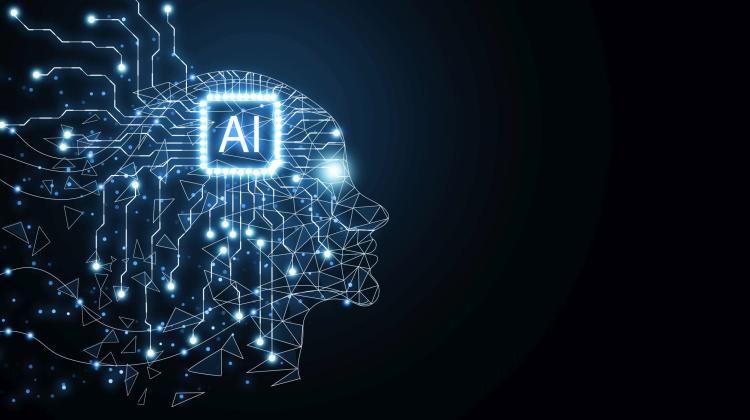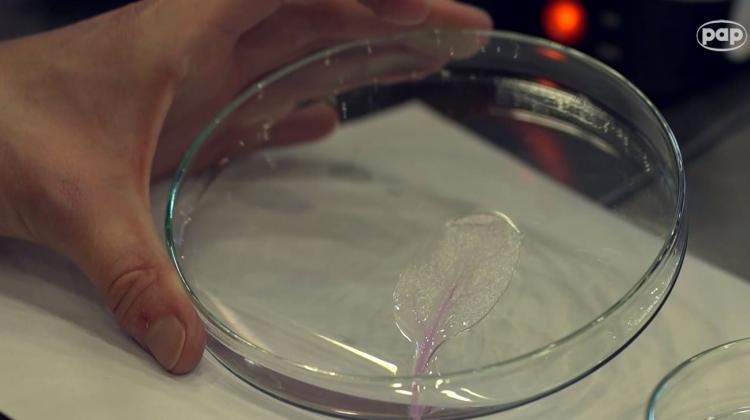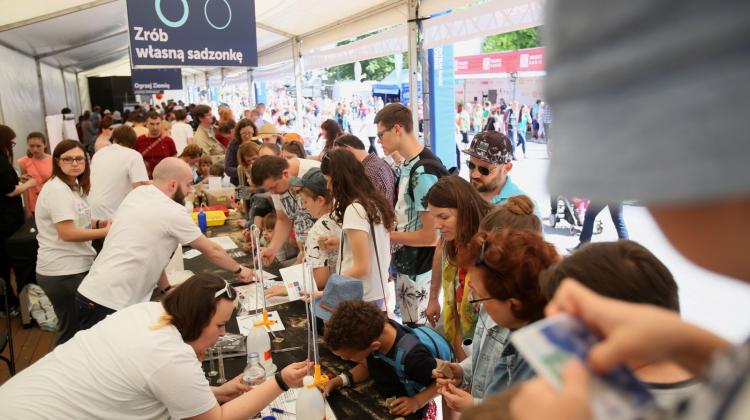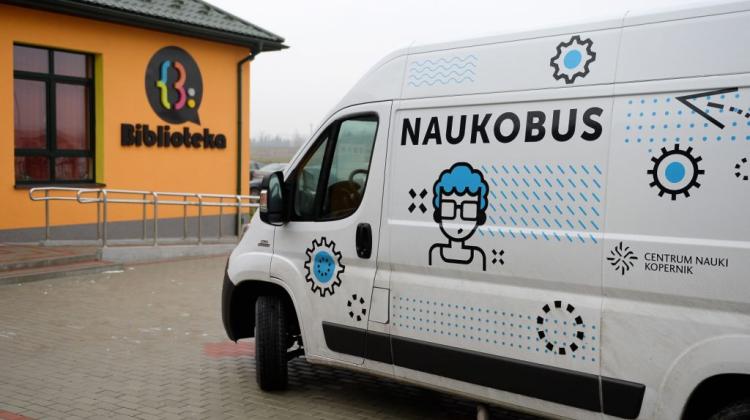How we beat COVID-19 is down to ‘normal people’, not the 'rich and powerful' says Copernicus Science Centre Director Robert Firmhofer
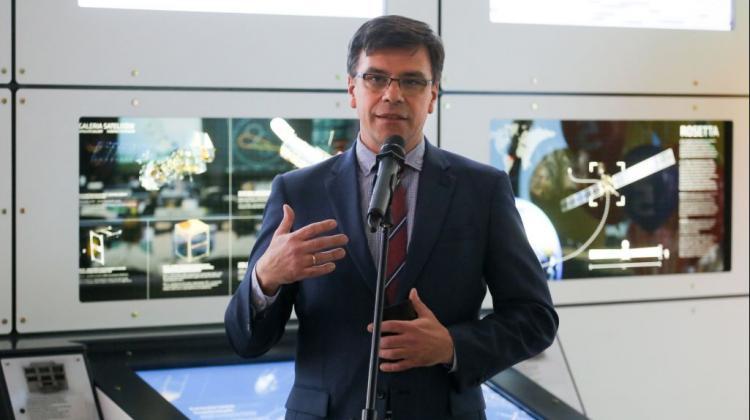 Director of the Copernicus Science Centre Robert Firmhofer. Credit: PAP/Paweł Supernak 05.11.2015
Director of the Copernicus Science Centre Robert Firmhofer. Credit: PAP/Paweł Supernak 05.11.2015
The shape of the world after the pandemic depends on our choices. And we are facing several alternatives: science or populism, openness or closure, solidarity or elitism. Nothing is decided yet, Robert Firmhofer, director of the Copernicus Science Centre, says in an interview with PAP.
The world faces at least three important alternatives, says Director of the Copernicus Science Centre in Warsaw, Robert Firmhofer when asked about the long-term, non-medical effects of the coronavirus pandemic.
SCIENCE - POPULISM
The first choice is the victory of science, evidence-based thinking - or the victory of populism.
“We are now listening intently to doctors' advice and developments with the epidemic. We are also waiting for a COVID-19 vaccine and we realize how important what scientists have to say is.
“It suddenly became clear that science can not only provide us with knowledge about the world, but also information and solutions that guarantee our safety and security, and in the future will contribute to development and prosperity.”
In Firmhofer’s opinion, if the respect for science continues after the epidemic has stopped, then perhaps people will be equally serious about other analyses or warnings from scientists. “This applies to phenomena with long-term effects. For example, the loss of biodiversity, which in the long run threatens us as a species. Or global warming.”
In the face of the COVID-19 pandemic, people are beginning to realize the importance of mathematical models in making various decisions (for example, pandemic development models help politicians decide what security measures to take and when to implement them to reduce the number of victims). Action based on scientific knowledge ceased to be something abstract and began to be something obvious.
But, Firmhofer warns that it cannot be ruled out that the opposite will happen.
“Presidents of some democratic countries, such as Donald Trump and Jair Bolsonaro, often disregard scientific facts and mislead public opinion, but do not lose popularity at all. The development of a pandemic is accompanied by an increasing popularity of para-scientific conspiracy theories that tie the origin of the virus to the 5G network, the operations of pharmaceutical companies or secret laboratories in the US or China. So maybe populism is deeply rooted, and people prefer to deal with myths, simple solutions not supported by facts than with complicated answers that do have scientific support.”
Nonetheless, he remains upbeat saying: “I would be optimistic that science would win. And as director of Copernicus, I would like to convince the public that this is the right way.”
OPENING OR CLOSING?
Another dilemma is whether people will become more closed or open up to others.
'Some people are convinced that authoritarian countries, such as China, are now doing better than democratic countries that were more open. However, this view is not entirely justified he adds as the Chinese almost completely isolated the entire Hubei province and managed to stifle the epidemic. That said, Taiwan is handling the epidemic much better than China, using sophisticated tools based on science and technology.
He adds that in the face of a threat to health or life, all people have a need to protect themselves as best as possible, which in this case means 'isolate themselves from others'. “We now have closed borders because of the coronavirus. This is a rational short term action: we need to limit the spread of the virus. The question is whether the borders in the European Union will be reopened when the pandemic subsides, or will they remain closed for a long time. Will isolationism, the conviction that one should put the good of one country above others, be the effect of the pandemic?”
But the global lockdown has seen unprecedented cooperation between scientists from various countries (including Chinese researchers), who share the results of their work, instead of patenting or protecting it.
“Researchers are quickly sharing even partial research results so that other research teams and pharmaceutical companies can use them and develop the vaccine as soon as possible. It is unprecedented,” he said, adding that 70 different vaccines against SARS-CoV-2 are being developed.
“This proves how valuable cooperation and openness are to us. Scientists are racing against time to end the pandemic together, regardless of personal gain. Most scientists absolutely serve the common good. This is a new dimension of openness and globalism.”
SOLIDARISM OR ELITARISM
The third question related to the pandemic is whether solidarity or social elitism will prevail, says Firmhofer.
“Faced with the pandemic threat, very rich Russians have begun to buy ventilators for their palaces. They were convinced - rightly so - that they would not be able to perfectly isolate themselves from society. But even if they have money and reach for all possible methods of protection against the outside world, this virus will probably reach their well-guarded estates anyway.” This only confirms that the safety of wealthy people, the elites, depends on the behaviour and safety of poor people. And according to Firmhofer, we can only achieve the safety of each of us by mass vaccinating or achieving population immunity.
"The individualistic myth falls that if I do well, I will be safer. Maybe it works in normal conditions, but in pandemic conditions it only works for a short time. Now my safety depends on whether poorer people - those I didn’t pay attention to before - are safe.”
Firmhofer believes that nothing is determined yet: “The rich will either buy more expensive security and think that this is a way to their safety, or they will share their resources with others to strengthen health care and ensure safety for poor people, and thus also their own safety.”
WHICH WAY?
As for these three alternatives: science-populism, openness-closure, elitism-solidarity, every path is still open, the Copernicus director suggests.
But he is convinced that everyone has an impact on the direction the world will go: “We are citizens who have a vote in the elections. We are users of social networks. Each of us can influence many others. Each of us makes decisions and can convince others to make decisions. Which approaches will win is up to us, not the 'rich and powerful'.”
PAP - Science in Poland, Ludwika Tomala
lt/ zan/ kap/
tr. RL
Przed dodaniem komentarza prosimy o zapoznanie z Regulaminem forum serwisu Nauka w Polsce.




